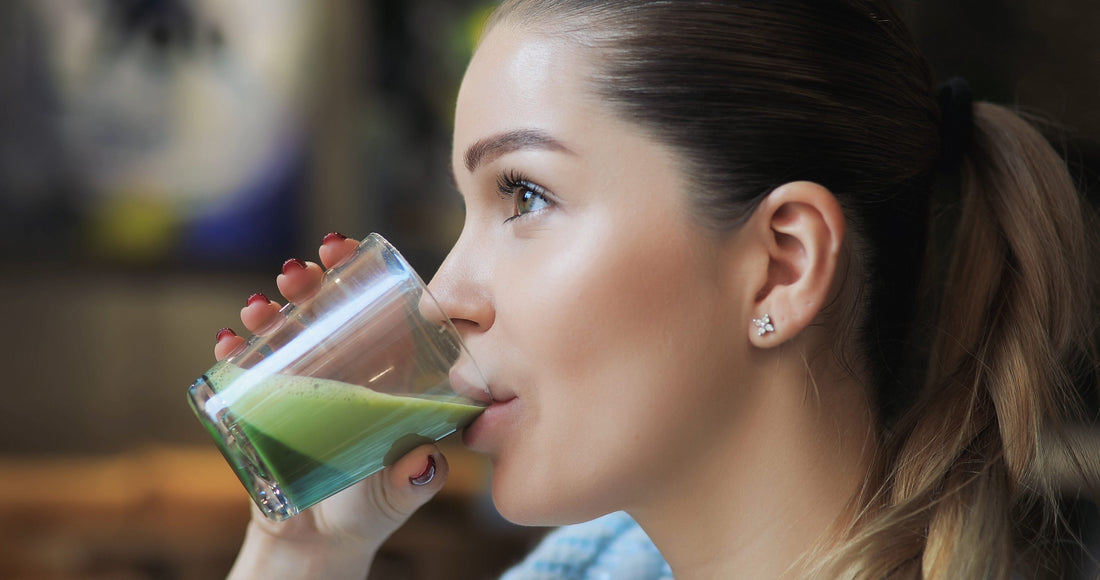
Ar matcha veikia geležies įsisavinimą? Štai tiesa.
My Store AdminBendrinti
Įvadas
Jei girdėjote, kad matcha mažina geležies absorbciją , nesate vieni. Pastaruoju metu sveikatingumo nuomonės formuotojai ir sveikatos tinklaraščiai pabrėžia šį susirūpinimą, tačiau atidžiau pažvelkime į mokslinius faktus. Taip, matcha gali sumažinti geležies absorbciją, tačiau tą patį gali padaryti ir visos arbatos, kava bei daugelis augalinių maisto produktų. Geros naujienos? Tai lengva apeiti, o matcha nauda sveikatai vis tiek nusveria susirūpinimą.
⸻
Kodėl matcha (ir arbata apskritai) veikia geležies įsisavinimą
Matcha arbatoje, kaip ir visose žaliosiose arbatose, yra taninų (ypač katechinų ir polifenolių). Jie gali jungtis su neheminiu geležimi (geležimi, randama augaliniuose maisto produktuose), todėl gali sumažėti geležies pasisavinimas valgio metu.
📌 Svarbu: šis poveikis yra tik laikinas ir taikomas tik maiste esančiai geležiai, o ne jūsų organizme sukauptai geležiai.
⸻
Taigi… ar tai tik matcha ?
Ne! Tai pat:
• Juodoji arbata ☕
• Žalioji arbata (įskaitant matcha 🍵)
• Kava ☕
• Kakava 🍫
• Raudonasis vynas 🍷
• Net kai kurie ankštiniai ir grūdiniai augalai (dėl fitatų)
Taigi, tai visai nebūdinga vien matchai – tai dalis to, kaip daugelis natūralių augalinių maisto produktų sąveikauja su virškinimu.
⸻
Kaip mėgautis matcha nesijaudinant dėl geležies
Geležies absorbcijos sutrikimų galite lengvai išvengti atlikdami šiuos paprastus pakeitimus:
1. Venkite gerti matcha su geležies turinčiais patiekalais
→ Palaukite 1–2 valandas po valgio arba išgerkite prieš valgį.
2. Pridėkite vitamino C šaltinį
→ Derinkite su vaisiais, tokiais kaip apelsinas, kivis ar uogos, kad pagerintumėte geležies įsisavinimą.
3. Geležies papildus vartokite atskirai
→ Geriausia vakare arba kaip nurodė gydytojas, atokiau nuo arbatos ir kavos.
4. Naudokite matcha ryte
→ Kai dauguma žmonių nevalgo geležies turtingų patiekalų, pavyzdžiui, lęšių ar lapinių daržovių.
⸻
O kaip dėl geležies kaupimo ir papildų?
Svarbu suprasti, kad matcha (ar bet kuri kita arbata) nesumažina jau organizme sukaupto geležies kiekio. Ji tik laikinai paveikia nehemo geležies (randamos augaliniame maiste) absorbciją virškinimo metu – ir tik tuo atveju, jei vartojama tuo pačiu metu.
Jei vartojate geležies papildus, geriausia vengti gerti matchą, kavą ar arbatą 1–2 valandas po jų vartojimo. Taip užtikrinsite, kad jūsų organizmas pasisavintų kuo daugiau papildo.
💡 Trumpas patarimas:
Vartokite papildą su vitamino C šaltiniu (pvz., apelsinų sultimis ar vaisiais), kad pagerintumėte įsisavinimą, o matcha pasilikite anksčiau arba vėliau dieną.
Esmė: nepraleiskite matcha
Matcha siūlo unikalų derinį:
• Rami, ilgalaikė energija (iš kofeino + L-teanino)
• Antioksidantai, tokie kaip EGCG
• Palaiko medžiagų apykaitą, nuotaiką ir odos sveikatą
Daugumai sveikų žmonių, besilaikančių įvairios mitybos, matcha nesukelia geležies trūkumo, ypač jei vartojama atsakingai. Daugiau apie matcha naudą skaitykite čia.
⸻
Green Bubble Matcha
Mes tikime subalansuota gerove, o ne baimės pagrindu sukurtomis tendencijomis. Matcha yra vienas maistingiausių ir antioksidantų turtingiausių gėrimų, kuriais galite mėgautis. Tik atkreipkite dėmesį į laiką ir mėgaukitės juo kaip savo geros savijautos ritualo dalimi.